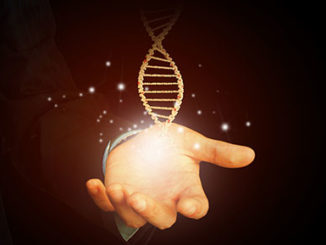Aging is a normal process linked to specific patterns and changes in the epigenome, particularly DNA methylation. Harnessing epigenetic mechanisms and understanding the epigenetic clock might enable us to slow or reduce human aging in the future, especially as scientific research reveals new associations and insights.
After DNA methylation patterns have been established during embryogenesis, researchers investigate how they are maintained, and how the environment can influence changes to marks on top of DNA during one’s lifespan.
Fascinating new research out of Drexel University suggests that restoring balance to certain epigenetic enzymes might reinstate memory and lead us closer to a potential therapy for Alzheimer’s disease. This devastating type of dementia causes issues with memory, cognition, and behavior. Could epigenetics help reverse symptoms and bring back cognitive abilities in those with Alzheimer’s? The symptoms usually appear gradually and worsen over time, such as memory loss, difficulty planning or solving problems, and confusion with time or place. According [more…]
Alzheimer’s disease (AD) is a complex neurodegenerative disease that occurs due to an accumulation of amyloid plaques and neurofibrillary tangles in the brain. It affects over 5 million Americans of all ages, particularly those over 65 years of age and is one of the leading causes of death in the US. Currently, there are no sure ways to cure, prevent or even slow down progression of the disease. It is believed to be caused by a combination of genetic and [more…]
Pinpointing factors that make a person unique could shift the entire landscape of how we attend to our health – from exercise plans to custom diets and even skincare regimens. The concept of personalization has pierced the bubble of the prevailing “one size fits all” mentality, deflating the flawed notion that what works for the majority will likely work for anyone. When it comes to our bodies’ largest organ, and caring for it effectively, epigenetics may provide an answer. Our [more…]
We might say a beautiful woman is born with her looks or that she was endowed with good genes. But what if some of her beauty comes from reversible marks on top of her genes? The epigenetic tags on her DNA might be contributing to her glowing skin, young complexion, and silken hair. Interestingly, there may even be ways in which simple lifestyle changes could adjust these epigenetic tags, modulating the expression of certain genes that promote beauty and health. [more…]
Nearly a century ago, researchers discovered that cutting calorie intake was actually able to extend lifespan in various animal species. Although numerous studies have been conducted since to find out exactly why reducing calories can extend lifespan, scientists have been unable to pinpoint the answer. Now, a group of investigators at the Lewis Katz School of Medicine at Temple University (LKSOM) have uncovered an explanation to the longevity conundrum, something they call “age-related methylation drift.” The senior investigator, Jean-Pierre Issa, [more…]
Whether we like it or not, we’re faced with many physical changes as we get older. Wrinkles form, bones and muscles grow weaker… even the way fat is distributed throughout the body changes radically. As we age, we lose a certain type of fat cell that burns fatty deposits, which increases the risk for obesity. But there may be hope. Interestingly, researchers are finding that an epigenetic enzyme might be able to prevent this pesky change from happening. Epigenetics has [more…]
Certain people will age quicker and die sooner, even if they keep their body healthy, suggests a largescale analysis by UCLA scientists. Regardless of how well you take care of yourself, an accelerated internal epigenetic clock may lead to an earlier death for some. Researchers assessed data from over 13,000 individuals, measuring levels of DNA methylation in hundreds of specific areas on the genome to determine their “epigenetic age.” Epigenetic marks found on DNA and histone proteins are known to [more…]
Scientists have been curious about whether race or ethnicity directly impact molecular markers of aging. Could people of certain race be more likely to age faster or slower? A group of researchers from UCLA conducted a study that was the first of its kind, demonstrating that Latinos actually age more slowly than other ethnic groups. On average, Latinos live three years longer than Caucasians. Even though Latinos are shown to have longer lives, they actually experience a greater rate of [more…]
We all know the extensive benefits of exercise: work out to stave off disease, improve mental acuity, lose weight, reduce stress, and so on. But even with all these benefits, there are still some questions surrounding the molecular causes that underlie them. Epigenetics has been particularly helpful in gaining new insights into the wide range of health benefits of exercise. Recently, a study showed that exercise could epigenetically keep the brain healthy by boosting the production of a protein called [more…]
For years, scientists have disagreed on whether menopause causes aging or aging leads to menopause, giving rise to a “which came first” debate. New epigenetic research may help settle this long-standing disagreement, offering evidence that menopause might actually make a woman age faster. Two recent UCLA studies show that menopause and its common side effect – insomnia – may accelerate aging. This could potentially increase a woman’s risk for diseases related to aging and possibly lead to an earlier death. [more…]










